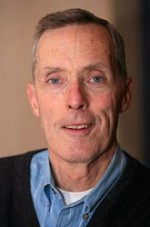I attended a musical variety show recently that featured popular tunes from various decades. A rear projection screen showed television commercials from each era to help evoke a feeling from that time.
One of the commercials from the 1950s featured a man wearing a business suit, sitting in a chair with a Philip Morris cigarette in hand, extolling its virtues. Subtitles proclaimed “no sore throat” and “no coughing.” It also claimed to improve one’s lifestyle by relieving stress and promoting relaxation.
“How could they do that?” was the audience’s reaction. How could the commercial promote improved pulmonary conditions with a tobacco product? It seemed absurd.
Many in the audience, who had been regular viewers of such ads in the past, now think they are ridiculous. Medical research linked smoking to fatal diseases. In the U.S., all but confiscatory taxes were placed on tobacco products and laws began to severely regulate smoking in public. The dangers of cigarette smoking were slowly understood.
[hotblock]
The same thing happened with attitudes toward the environment as we learned that polluting the air and rivers was not acceptable.
These days, concern about wealth inequality is emerging. However, it has not yet reached the “something must be done” level that brought about tobacco as well as ecological regulations.
Consider that the average annual income of the top 1 percent in the United States is $717,000 compared to $51,000 for the rest. The net worth of the 1 percent is $8.4 million, 70 times that of the lower classes.
Those at the lowest rungs have no money, and no power or voice. Those at the top have money, power and a voice to play a major role in the shape and direction of the economy and society.
The issue doesn’t stir much interest other than in those at the very bottom or at very top. But the vast middle can bring about fundamental, systemic change. The wealth gap will not change until its evils become more widely known. This requires leadership.
Pope Francis sees a present-day economy in which many find themselves “excluded and marginalized: without work, without possibilities, without any means of escape,” as he puts it in “The Joy of the Gospel.”
In December, President Barack Obama also spoke of the problem and said that “increasing inequality is most pronounced in our country. And it challenges the very essence of who we are as a people.”
This inequality, along with the inability of many to move up the economic ladder, poses a threat to the American dream, the president said.
The pope and U.S. president each see it as a matter of justice — distributive justice.
The U.S. bishops spoke about it in their “Economic Justice for All” 1986 pastoral letter and said that distributive justice “requires that the allocation of income, wealth and power in society be evaluated in light of its effects on persons whose basic material needs are unmet.”
It is a sentiment shared in No. 2411 of the Catechism of the Catholic Church, where it says that “the community owes its citizens in proportion to their contributions and needs.”
The pope says political leaders need to take action. He also reminds the rich that they “must help, respect and promote the poor.”
Perhaps, in a decade or two, we will be astounded that we lived in an era when we had economic inequality.
***
Kent is the retired editor of archdiocesan newspapers in Omaha and Seattle. Contact him at: considersk@gmail.com.
PREVIOUS: You can’t go back in time, but you can learn from mistakes
NEXT: Marriage looks much like the Easter story




Share this story